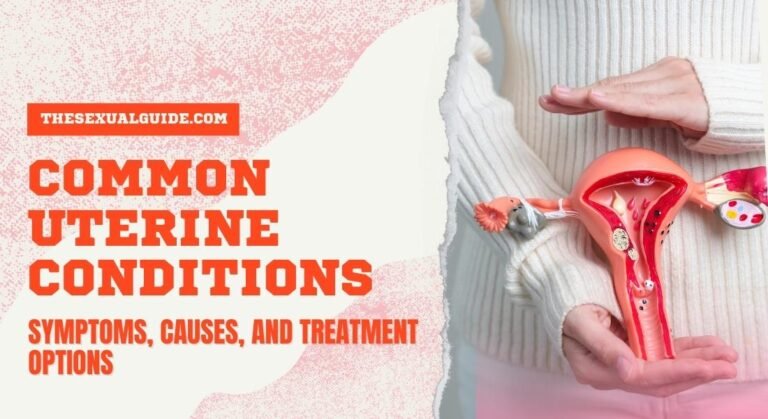Maintaining a healthy sex life offers more than just physical pleasure; it plays a significant role in promoting cardiovascular health.
Engaging in regular sexual activity can contribute to a healthier heart by improving various physiological and psychological factors.
The Cardiovascular Benefits of Regular Sexual Activity
Physical Exercise and Heart Health
Sexual activity serves as a form of physical exercise, which is beneficial for heart health. The physical exertion during sex can help:
- Enhance Cardiovascular Fitness: Regular sexual activity can improve heart function and reduce the progression of heart failure.
- Lower Blood Pressure: Engaging in sexual activity has been associated with reduced blood pressure, a key factor in heart disease prevention.
Hormonal Benefits
Sexual activity triggers the release of hormones that benefit heart health:
- Oxytocin: Known as the “love hormone,” oxytocin helps reduce stress and promotes emotional bonding, which can lower heart disease risk.
- Endorphins: These natural mood elevators alleviate stress and anxiety, contributing to better cardiovascular health.
The Link Between Erectile Dysfunction (ED) and Heart Disease
Erectile dysfunction is not only a concern for sexual health but also serves as a potential early warning sign for cardiovascular issues.
Shared Risk Factors
ED and heart disease share common risk factors, including:
- Atherosclerosis: The buildup of plaques in arteries can impede blood flow, affecting both heart function and the ability to achieve erections.
- Endothelial Dysfunction: This condition, characterized by impaired blood vessel function, is a common factor in both ED and heart disease.
Importance of Medical Consultation
Men experiencing ED should consult healthcare providers, as it may indicate underlying cardiovascular issues.
Early detection can lead to interventions that improve both sexual and heart health.
Recommendations for a Heart-Healthy Sex Life
To maximize the cardiovascular benefits of sexual activity:
- Maintain Regular Physical Activity: Engage in regular exercise to enhance overall cardiovascular fitness, which can improve sexual health.
- Monitor Sexual Frequency: While regular sexual activity is beneficial, excessive frequency may pose risks. A study suggests that moderate sexual activity is associated with better heart health outcomes.
- Communicate with Healthcare Providers: Discuss any sexual health concerns with your doctor, especially if experiencing symptoms like ED, as they can be indicators of heart health issues.
Addressing Erectile Dysfunction with Trusted Solutions
For those experiencing ED, seeking appropriate treatment is crucial.
Trusted providers like LibidoDepot offer solutions to help individuals regain sexual function, which can contribute to improved heart health.
Conclusion
Maintaining a healthy sex life is more than a source of pleasure, it is a powerful contributor to cardiovascular health.
Regular sexual activity acts as a form of physical exercise, helps regulate blood pressure, and promotes the release of heart-friendly hormones like oxytocin and endorphins.
Additionally, recognizing erectile dysfunction as a potential early sign of heart disease allows for timely medical intervention, potentially improving both sexual and cardiovascular outcomes.
By staying active, monitoring sexual health, and consulting healthcare providers, individuals can enjoy the dual benefits of a satisfying sex life and a stronger, healthier heart.
Want to learn more? Visit LibidoDepot for trusted solutions.
FAQs: Sex & Heart Health; How Intimacy Reduces Heart Disease Risk
1. Can regular sexual activity really benefit heart health?
Yes, studies have shown that regular sexual activity can improve cardiovascular health by reducing stress, improving circulation, lowering blood pressure, and promoting hormonal balance that supports heart function.
2. How does intimacy help reduce the risk of heart disease?
Intimacy, both emotional and physical, helps activate the parasympathetic nervous system, which lowers stress hormones, improves sleep, and reduces inflammation, all of which are protective against heart disease.
3. Is sex safe for people with existing heart conditions?
In many cases, yes, especially if the condition is well-managed. However, individuals with severe heart disease or recent cardiac events should consult their healthcare provider before resuming sexual activity.
4. How often should one engage in sexual activity to see cardiovascular benefits?
While there’s no one-size-fits-all answer, some studies suggest that having sex at least once or twice a week may be linked to better heart health outcomes. However, overall lifestyle factors matter too, like exercise, diet, and stress management.
References
- Sexual Activity and Cardiovascular Disease
- The Association of Sexual Frequency with Cardiovascular Diseases
- Sexual Activity and Heart Disease
- Sex and Heart Health: Is Sex Good for the Heart?
- Matters of the Heart: Sex and Cardiovascular Disease
- Is Sex Dangerous If You Have Heart Disease?






